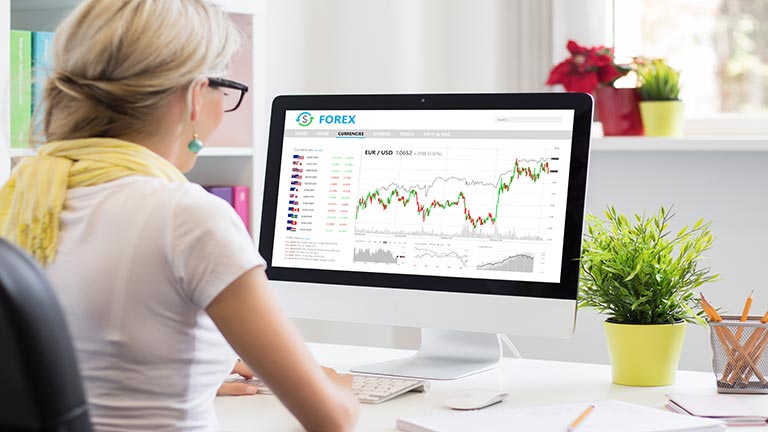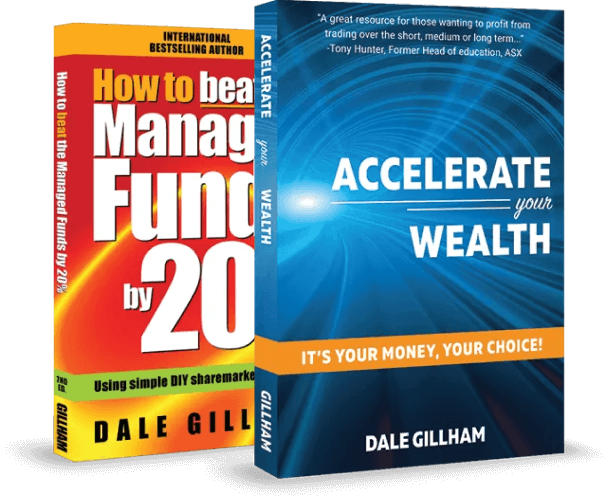Is the Trade War a Sign of a Financial Tsunami?

By Dale Gillham
For the second time in as little as two weeks, global recession fears and amplification of the US vs China trade war has rippled through the Australian and world stock markets, resulting in a selloff of stocks across the board. This is causing many investors to question whether a second sell off is a sign of a financial tsunami unfolding in the Australian stock market.
As I have previously mentioned, markets rise and fall in steps like a stair case, but during times of heightened volatility, such as reporting season, these steps are often bigger. Remember, the big end of town love to capitalise on the uncertainty of investors, and they use the media to increase the level of uncertainty so that they profit more.
When news breaks that the market is trading down heavily, investors become fearful and, as a result, panic and hit the sell button. The problem with this is that they end up exiting good stocks they should have held, and they inevitably miss out on the capital gains that results once the dust settles.
Large institutional funds like to heavily short the market to push prices lower. The more price falls, the more investors make irrational decisions and sell. At this point, the institutions start buying at a discount and, as a consequence, price stops falling and rises once again.
In simple terms, the big end of town sells at the top when investors are buying and buy at the bottom when investors are selling. I strongly advise you to arm yourself with this knowledge, as you will avoid being caught in this never ending cycle.
Now that reporting season is in fully underway, let’s look at how those companies who reported performed this week.
Earnings season continues to shock the market
JB Hi Fi smashed expectations announcing a 7.1 per cent increase in profits and a $0.10 increase in its dividend to $1.42 a share. This good news resulted in the stock rising as much as 13 per cent, as short sellers scrambled to cover their positions. Once again, the bears have been burnt by JB Hi Fi.
Bendigo Bank reported underwhelming full-year earnings with net profits down 13.3 per cent from the previous year. The bank’s representatives attributed the slump to redundancies and remediation costs, alongside a declining interest rate environment. Despite falling profits, Bendigo announced its dividend would remain unchanged.
Magellan Financial Group was placed in a trading halt after reporting strong earnings and announcing it would raise $275 million from institutional investors. The company announced it would be spinning off an IPO of its listed investment trust, the ‘Magellan High Conviction Trust’, and increasing total dividends by 38 per cent. Despite this positive news, Magellan fell over 15 per cent, so now is not the time to buying this stock although I do believe it is one to keep on your watch list to look at later in the year.
CSL also reported strong earnings this week, which saw its shares climb over 6 per cent before pulling back slightly. CSL has been one of the best ASX growth stocks since listing on the stock market and is showing no signs of slowing down with profits up 17 per cent from the previous year. This is a really great stock for those who like to buy and hold.
The ASX also announced its revenues were up $864 million or a rise of 6.5 per cent on the previous year and a dividend payment of $1.14 a share. It also announced an additional special dividend of $1.29 a share after the sale of its shareholding in IRESS.
Woodside Petroleum, on the other hand, fell short of earnings estimates reporting that operating revenue was down 5 per cent and it would cut its interim dividend. Sliding oil prices, as a result of the US China trade war, and the impact of Cyclone Veronica has significantly impacted Woodside’s bottom line.
Telstra also released disappointing results with profits down 40 per cent. While results were in line with expectations, Telstra also flagged future headwinds as a result of the NBN, which is expected to impact its bottom line further. Telstra also announced it would be cutting its full year dividend from 22 cents down to 16 cents a share.
Insurance giant QBE avoided the market sell off after reporting positive earnings this week with a 29 per cent increase in profits in the first half of the year. Anyone holding QBE over the past decade would be very disappointed in its performance, as it has only traded sideways. If it can back up the recent good news with further growth in the coming months, it may just be the start of a turn around in fortunes for this company.
Looking at the sectors this week, Healthcare has topped the list up around 1.5 per cent, while Consumer Discretionary and Consumer Staples were the next best, although they were both down less than 2 per cent. The worst sectors for the week were Energy down over 4 per cent followed by Financials not far behind.
As for S&P/ASX top 100 stocks, JB Hi Fi was up over 10 per cent followed by Treasury Wines and Ansell both up around 5 per cent. The worst performers were Orora down over 16 per cent, closely followed by Magellan and CYBG.
What do we expect in the Australian stock market?
This week has pretty much confirmed that the market is now moving into its yearly low and the all-time high of 6958 points achieved on 30 July was most likely the yearly high that I have been expecting. If this is correct, it is likely that we will see some upside moves in the market over the next few weeks, although overall the trend will be mainly down.
Given this, the yearly low will most likely occur in September or at the latest in early October with the market falling to between 6400 and 6200 points, which is a further fall of between 2 and 4 per cent from current levels.
So what should you do? If you have solid blue-chip stocks and you are a longer-term investor, just ride out the wave. If you have cash to buy new stocks, I recommend waiting for four to six weeks, as you be able to grab some great bargains once the low is confirmed.
So let’s get into this week’s stocks of interest. Watch the video to find out more.
Goodluck and good trading!
Dale Gillham is Chief Analyst at Wealth Within and international bestselling author of How to Beat the Managed Funds by 20%. He is also author of the award winning book Accelerate Your Wealth—It’s Your Money, Your Choice, which is available in all good book stores and online.






